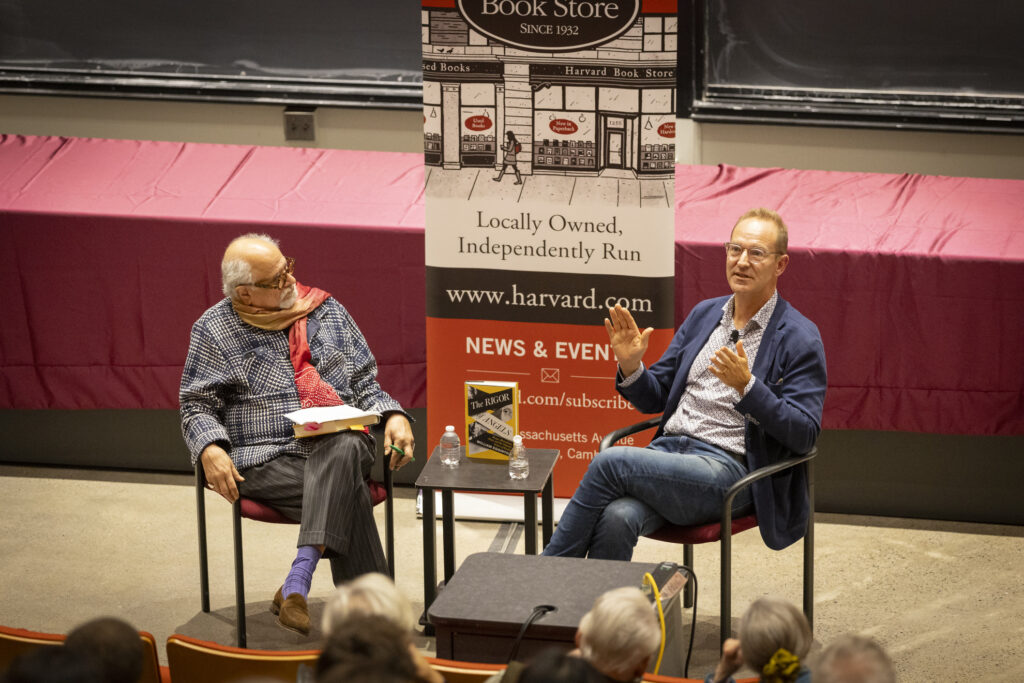The title character of “Funes the Memorious,” a short story by Argentine writer Jorge Luis Borges, suffers a head injury that renders him incapable of forgetting even the smallest detail. Forced to perceive everything at every moment in sharp relief, Funes grieves the ability to experience the world, as others do, in abstractions.
This story of the “perfect observer” helped author William Egginton better understand German physicist Werner Heisenberg’s principles that helped lay the foundations of quantum mechanics. It also inspired Egginton to write a book exploring the nature of reality and the different ways humans grasp it through the lenses of three great thinkers: Borges, Heisenberg, and Prussian philosopher Immanuel Kant.
At a Harvard Science Book Talk on “The Rigor of Angels: Borges, Heisenberg, Kant, and the Ultimate Nature of Reality,” Egginton was joined by Homi K. Bhabha, the Anne F. Rothenberg Professor of the Humanities. Their conversation kicked off with Egginton reflecting on the book’s themes, including metaphysics, ethics, and cosmopolitanism.
Egginton, the Decker Professor of Humanities at Johns Hopkins University and author of several books that cross philosophy and science, called attention to the key theme of epistemic humility, or the idea that there is a fundamental limit to how much we know.
“But we have a tendency to override those limits,” Egginton offered. This is a central idea in Kant’s body of work, known as critical philosophy, and arguably in the literature of Borges and the science of Heisenberg, he said.
The mysteries of quantum mechanics can be summarized, Egginton continued, by the double-slit thought experiment (which later became an actual experiment), in which particles like electrons and photons become wave-like when not being observed, only to revert back to particles when measured. Heisenberg declared that “a particle has no path until we observe it.” Albert Einstein was famously uncomfortable with the notion.
Being perfect in knowledge meant Funes the Memorious could not generalize ideas and experiences, which he experienced as imprisonment — even torture. Egginton likened Funes’ fate to Heisenberg’s uncertainty principle, in which observation of a physical phenomenon automatically constrains our view, putting natural limits on what we can call “reality.”
“We need to remind ourselves that what we’re studying is not nature itself,” Egginton said. “We’re studying nature as it reveals itself to our instruments of knowledge … and this is exactly what Kant was ultimately saying about science, too. It’s not that the world out there doesn’t exist in some kind of radical, solipsistic sense at all. We’re accepting that when you’re trying to do science, you’re doing science about the world as it exists for beings like us.”
The next Harvard Science Book Talk on Nov. 18 features Nobel Prize winner P.J.E. Peebles on “The Whole Truth: A Cosmologist’s Reflections on the Search for Objective Reality
[ad_2]
Source link

